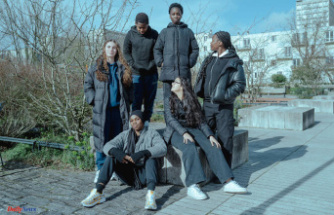TAMPA — Last year's federal instructions concerning transgender students and restrooms touched off a brief culture war in the Hillsborough County public schools and around the nation.
7 Months Ago
4 Months Ago
6 Months Ago
Now that the Trump administration rescinded the instructions, more questions remain.
Are transgender students protected under the federal Title IX law against school discrimination based on sex?
And is it even enough to allow a transgender student to use a single-stall restroom?
With arguments scheduled March 28 before the U.S. Supreme Court in a Virginia case, local school districts are looking for direction.
"We're just going to have to be a little bit nimble and wait and see what happens," said Hillsborough County School Board member Melissa Snively, whose district includes a large number of social conservatives.
The stakes are high not only for transgender students, but for all students in the lesbian, gay, bisexual and transgender community who worry about respect and acceptance.
"I never thought it was a bathroom issue," said Linda Lerner, a member of the Pinellas County School Board. "It's much more than that."
For Hillsborough, last year's directive arrived as the board was considering an amendment to its anti-harassment policy that would have added the phrase "gender expression" to a list that already included race, nationality and gender identity.
While the two issues were unrelated, dozens of speakers addressed the board about the pro's and con's of accommodating the preferences of transgender students.
The district removed the new policy from consideration, fearing it would lose in a vote.
District leaders also carved out what they believed to be a safe middle ground on the restroom issue: Each school would have a single-use, universal-gender restroom that could be used for any privacy reason.
"It was minimal and safe," said board chairwoman Cindy Stuart. "I liken them to family restrooms at the mall."
At the same time, they held equity training sessions for all principals, emphasizing the need to treat all students with respect.
Advocates on Tipobet both sides of the gay rights divide were satisfied and, for the most part, the issue died down.
But a ruling in the U.S. Supreme Court case of Gloucester County School Board v. G.G. could change all that.
Gavin Grimm, now a senior at Gloucester High School in Virginia, sued in 2015 after the board barred him from the boys' bathroom. His school requires him to use a separate single-stall restroom, which he has argued unfairly stigmatizes him.
Grimm's lawyers say the policy, which requires students to use bathrooms aligned with their biological sex, violates Title IX.
The 1972 law, which is best known for requiring equity in college sports programs, states that education programs receiving federal dollars may not discriminate against students "on the basis of sex."
Conservatives including Hillsborough's Terry Kemple say that's all Title IX covers, male versus female.
But in some court decisions, judges have upheld the broader definition. One argument they have used is that expecting students to conform to gender stereotypes is, by definition, discrimination.
Most local school districts weathered the two directives from Washington, D.C. without making any changes to their practice.
"We're going to continue to treat each case individually," said Linda Cobbe, spokeswoman for the Pasco County district. "Just accommodate the students' wishes is how we typically do it."
Pasco worked to ensure a Mitchell High School transgender teacher received proper treatment from students and employees when that teacher transitioned in 2014.
And when a student at Zephyrhills High requested to use a different restroom, the district made arrangements and did not react to the small number of community complaints it received.
Hernando schools didn't make any sweeping changes either.
"Remember the language was a directive, not a law," said spokeswoman Karen Jordan. "We were guided by our attorney to wait further clarification."
In Pinellas County, requests from transgender students are considered on a case-by-case basis.
"Schools are requested to consult with the district's attorneys," said spokeswoman Lisa Wolf. "We treat each request with sensitivity and confidentiality. We pay close attention to the possible bullying aspects of this issue and prioritize student safety."
Times Staff Writers Jeffrey S. Solochek, Colleen Wright and Dan DeWitt contributed to this report, which also includes information from The Washington Post. Contact Marlene Sokol at (813) 810-5068 or msokol@tampabay.com. Follow @marlenesokol.
Our editors found this article on this site using Google and regenerated it for our readers.












